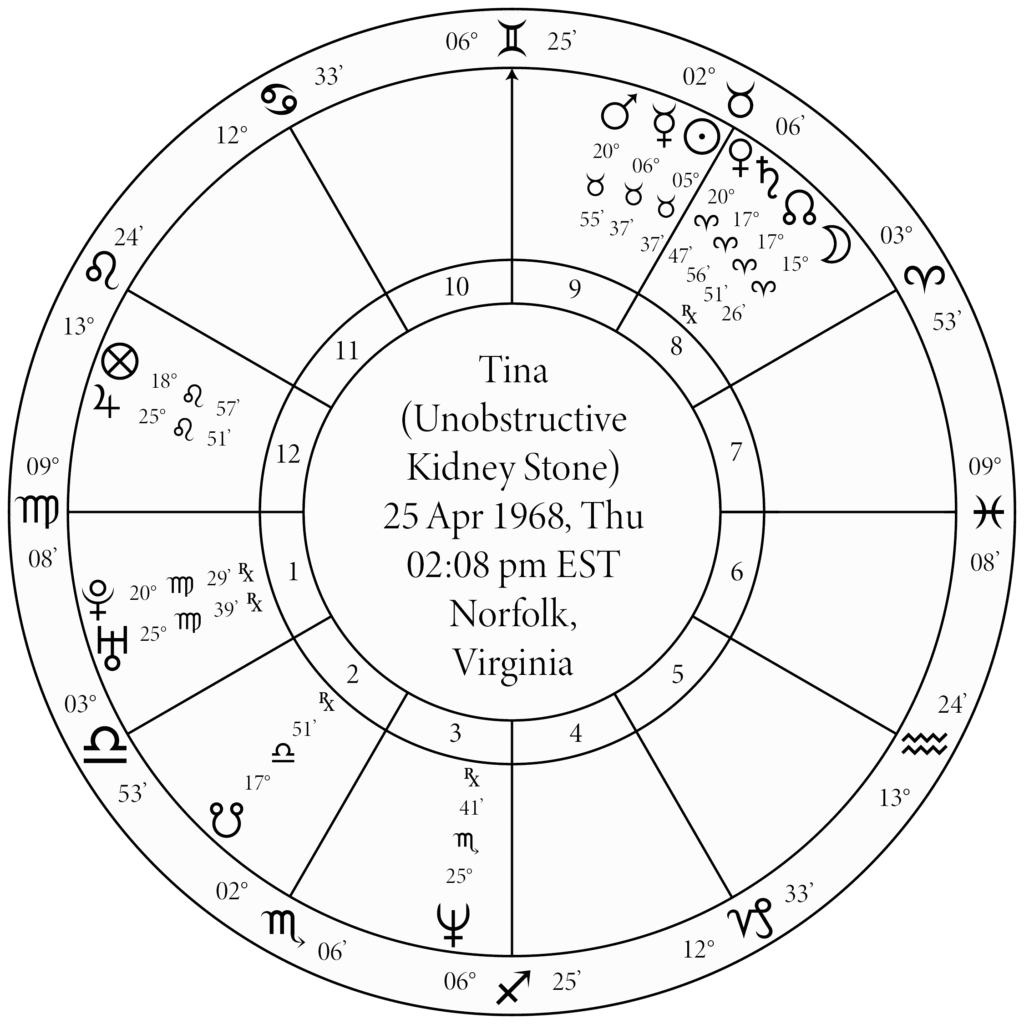
- Posted on
- No Comments
Tina (Unobstructive Kidney Stone)

Venus in Aries conjunct Saturn
Venus in hot and dry Aries naturally predisposes the native to excessive heat and dryness within her constitution. The native has a natural tendency towards dehydration. Venus/Saturn only further supports this condition, which may lead to impaired functioning of her kidneys. Furthermore, Venus/Saturn is the primary astrological constant for chronic diseases that impact the kidneys in general.
Moon in Aries conjunct Saturn
The Moon in hot and dry Aries predisposes the native to having a hot and dry constitution in general. Moon in Aries conjunct Saturn also points in this direction, and can lead to the native being extremely dehydrated in general. This combination also corresponds with hereditary health conditions that the native is likely to have inherited from her mother’s side of the family.
Venus in Aries quincunx Pluto
Venus governs the kidneys. In Aries, she already predisposes the native to dehydration and weakened kidney function. Venus in Aries quincunx Pluto denotes abnormal growths within the kidneys of the native that impair the functioning of these organs.
Mars square Jupiter
Mars governs heat in general. Mars/Jupiter increases the natural heat that exists within the native’s constitution. While Mars/Jupiter is usually considered to be a positive indication of health, when it is found within the constitution of someone who already has a tendency towards dehydration, this combination tends only further to support the native’s inclination towards overheating.
Mars parallel Pluto
Mars governs heat. Pluto corresponds with abnormally increasing the natural state of whatever it afflicts. Thus, Mars/Pluto may indicate an abnormal tendency towards inflammation, irritation, and overheating within the native’s constitution.
Mars opposite Neptune
This combination denotes a tendency towards poor health and weakened immunity. Ebertin describes this planetary combination as being the “basic formula for the normal and predictable course of diseases.”
